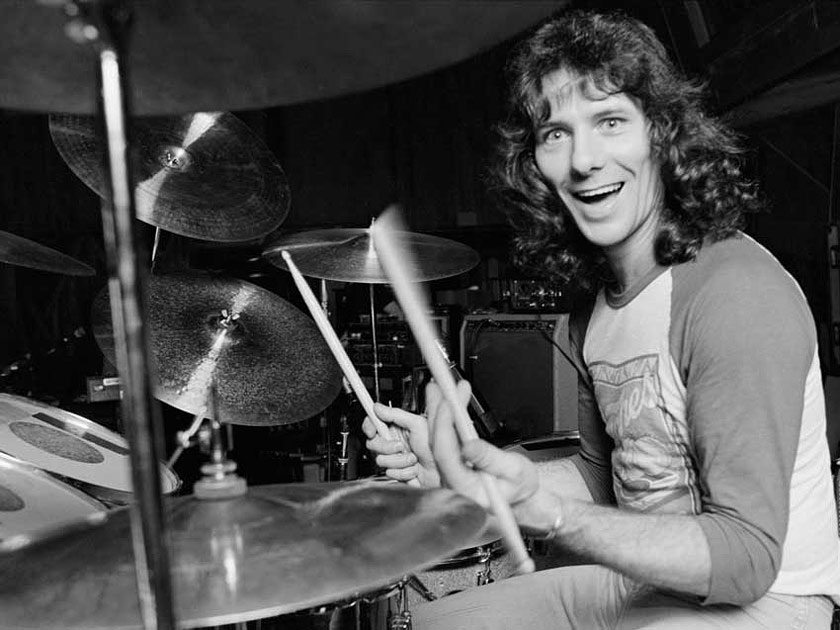
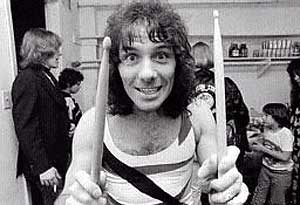
| Aynsley Dunbar |
|
Aynsley was born on January 10, 1946, in Liverpool, England. Over his
career, he has demonstrated the ability of playing many different styles including jazz, blues,
fusion, rock and progressive rock. With over 30 gold and platinum records from over 112 albums,
Aynsley Dunbar has proven himself one of the finest drummers in the business for over forty
years, whether as a member of a band or as a session musician.
Playing drums since the age of eleven, Aynsley began his professional career on the Liverpool jazz scene, playing at various gigs until joining a band called Leo Rutherford at fifteen, and then on to the traditional jazz band Merseysippi Jazz Band at the age of seventeen. In August, 1963, when rock descended on Liverpool, Aynsley shifted to rock/R&B and joined Derry Wilkieand the Pressmen. In January, 1964, the band disbanded and Aynsley joined four of the band members to form The Flamingos. After a short tour of Germany, they joined Freddie Starr in April of 1964 to form Freddie Starr and the Flamingos . In 1964, Aynsley joined the Excheckers, and then off to Stu James and the Mojos, a Liverpool band who toured from 1963-1966, famous for their pop hit entitled Everything's All Right. After leaving the Mojos, Aynsley joined John Mayall's Bluesbreakers in 1966 with Peter Green and John McVie to record such British Blues staples as Hard Road and many others. As a Bluesbreaker, Aynsley recorded with Eddie Boyd and released an EP record with Paul Butterfield. It was through Bluesbreaker concerts that drummers first discover that an Aynsley Dunbar drum solo was something never to be missed. Aynsley's next gig was drumming for the Jeff Beck Group, with Rod Stewart and Ron Wood, playing on Jeff Beck's Seminal Truth sessions, Tallyman and Rock My Plimsoul. Before leaving the band, the whole group appeared in Donovan's album, Barabajajal. In 1967, Dunbar formed a blues-rock band named The Aynsley Dunbar Retaliation, which featured guitarist/vocalist John Moorshead, keyboardist Tommy Eyre, bassist Alex Dmochowski, organist/singer Victor Brox, and also back veteran blues artist Champion Jack Dupree and Tim Rose, famous for his songs Hey Joe and In the Morning Dew. Rod Stewart also fronted Retaliation on an earlier live recording with members Peter Green and Jack Bruce. Retaliation disbanded and Aynsley formed a new band, Blue Whale, a progressive style jamming band that recorded one album that featured a cover of a Frank Zappa song, Willie the Pimp. While with Retaliation, Aynsley met Frank Zappa in Belgium at a BYG record festival, where Frank sat in with Retaliation on two songs. One night, upon randomly wondering into his favorite haunt, the London Club SpeakEasy, Aynsley was told someone was there waiting for him. There sat Frank Zappa. He invited Aynsley to join his new band and move to America. Aynsley arrived in the U.S., moved into Frank's Los Angeles house and set up his drums in his basement. Frank immediately put him to the test: OK, now remind me why I hired you. Aynsley delivered the goods and in that spontaneous moment, he and Frank created Chunga's Revenge. Not bad for the first day in the basement. Aynsley first appeared with Zappa on Chunga's Revenge and toured with the old Mothers on the Mother's Day Tour of 1970. Frank then approached Mark Volman and Howard Kaylan (The Turtles) to join his new version of the Mothers of Invention, appearing on such albums as Fillmore East: June 1971 and 200 Motels, and playing music that gave Aynsley a chance to show off his jazzier chops. In 1971, John Lennon and Yoko Ono joined Aynsley with Frank and the Mothers to record the live album Sometime in New York City. When Howard Kaylan (Flo) and Mark Voman (Eddie) jumped ship from Zappa's band in 1972 after a strange accident where a fan pushed Zappa from the stage and caused him to be confined to a wheel chair, Aynsley joined them as a member of their backing band for a short period. He would return to work with Zappa on jazzier studio projects like Waka/Jawaka, The Grand Wazoo, and Apostrohpe', as well as continuing his studio work for other artists. He joined David Bowie in the 1973-1974 time frame for the albums Pin-Ups and Diamond Dogs. Aynsley recorded powerful drumming on a cover of his own Mojos hit, Everything's All right, and Bowie's huge hit, Rebel Rebel. In 1973, Aynsley also recorded Lou Reed's famous session album Berlin with Jack Bruce, Steve Winwood, and Tony Levin. In 1974, after recording twelve albums in two years (yes, 12 in two years), Aynsley was acclaimed by the music industry as the world's leading session musician. That same year, too busy flying a bi-weekly Atlantic crossing from Los Angles-to-London to record with Bowie. Aynsley delayed returning several phone messages from Santana guitarist Neal Schon and manager Herbie Herbert . When Aynsley finally returned the call, he took a listen to this new jazz-rock fusion group named Journey. Eager to build a democratic rock-fusion band, he joined, recorded and co-wrote four albums, including the highly acclaimed rock-fusion instrumental Kohoutek, Of a Lifetime, which features Gregg Rolie vocals with high-impact solos, Hustler, which featured Aynsley's first use of double kick drums, and such mega-hits as Lights, Feeling That Way, Anytime,Patiently, Something to Hide and Wheel in the Sky. Aynsley departed Journey as the band shifted their sound away from challenging rock-fusion towards simpler ballads. In 1976, Aynsley played on rocker Sammy Hagar's album Nine On a Ten Inch Scale and played for the second time with Nils Lofgren to drum up his hit Back it Up on Cry Tough. Aynsley next joined Jefferson Starship in 1978, promptly bringing the band a new hit album with Freedom at Point Zero and such hits as Jane, Girl with the Hungry Eyes, and the mega hit, Find Your Way Back. He stayed with Jefferson Starship, touring and recording through 1982's Winds of Change. Aynsley took a well-deserved breather, to rest on his laurels in the great city of San Francisco, the same city that awarded him three prestigious BAMMIES. At the request of David Coverdale, over lunch at Sunset's La Dome, Aynsley was convinced to leave retirement to join Whitesnake in 1985. Aynsley played drums on the band's commercial breakthrough album, Whitesnake 1987, producing another string of hits, Still of the Night, What is Love and Here I go Again. Aynsley then took another leave to raise his four children, Gretchen, Bibs, Taylor and Dash but the sticks kept calling and Aynsley headed out on the road again in 1994, playing and recording with such artists as Pat Travers, UFO, John Lee Hooker, Michael Schenker, and collaborating with many of the world's top musicians on tribute albums to Van Halen, Steve Ray Vaughn, Black Sabbath, Aerosmith, Queen and most recently Metallica. In 1996, Aynsley joined guitarist Alvin Lee from Ten Years After, Eric Burdon and a band of veteran musicians for a tour entitled Best of British Blues. Soon after, a virtuoso of musicians formed a hard driving rock band Mother's Army, featuring guitarist Jeff Watson from Night Ranger, Ozzie Osborne's bassist Bob Daisley, Deep Purple front man Joe Lynn Turner with Aynsley on the chops for a progressive metal-rock album Fire on the Moon, now awaiting release in the U.S. In October 1996, Aynsley returned to his hectic world touring roots and signed on with Eric Burdon and the New Animals, bringing his powerful, driving beat to the rock `n roll hits We Gotta Get Out of This Place, It's My Life, Spill the Wine, Don't Bring Me Down, House of the Rising Sun, and many, many others. He has recorded three albums and a live recorded DVD which includes one of Aynsley's tremendous drum solos. As a New Animal, Aynsley reunited last year with John Mayall and Spencer Davis to perform for the Official 2000 Grammy Awards. The New Animals joined Spencer again, playing at the U.S. Democratic National Convention in 2000. No other modern rock / jazz / blues / fusion drummer has played with as many successful bands and musicians as Aynsley Dunbar. Although Aynsley has achieved such professional success, tragedy struck him June 1999, when his youngest son Dash was diagnosed with brain cancer. Sadly, Dash passed away on May 9, 2000. Dash's courageous fight proves to be an inspiration for Aynsley to keep pushing on, never to give up his dream... to continue creating music and to share his tremendous musical talent with the world. |
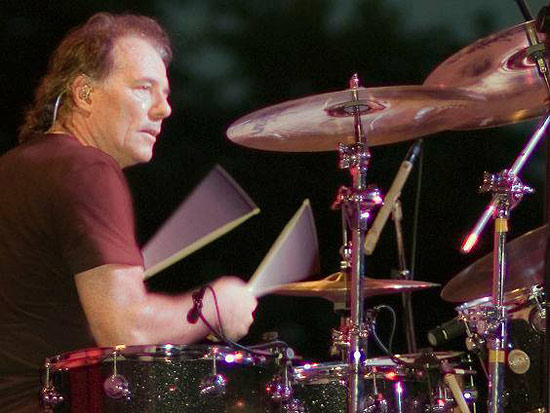

|
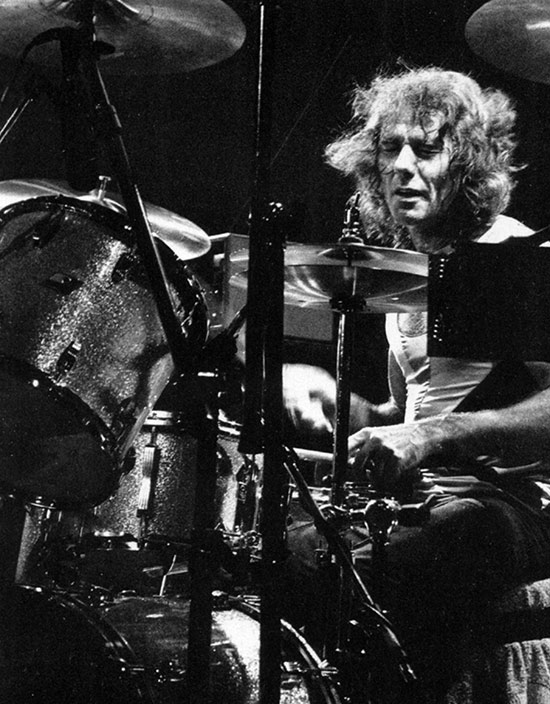
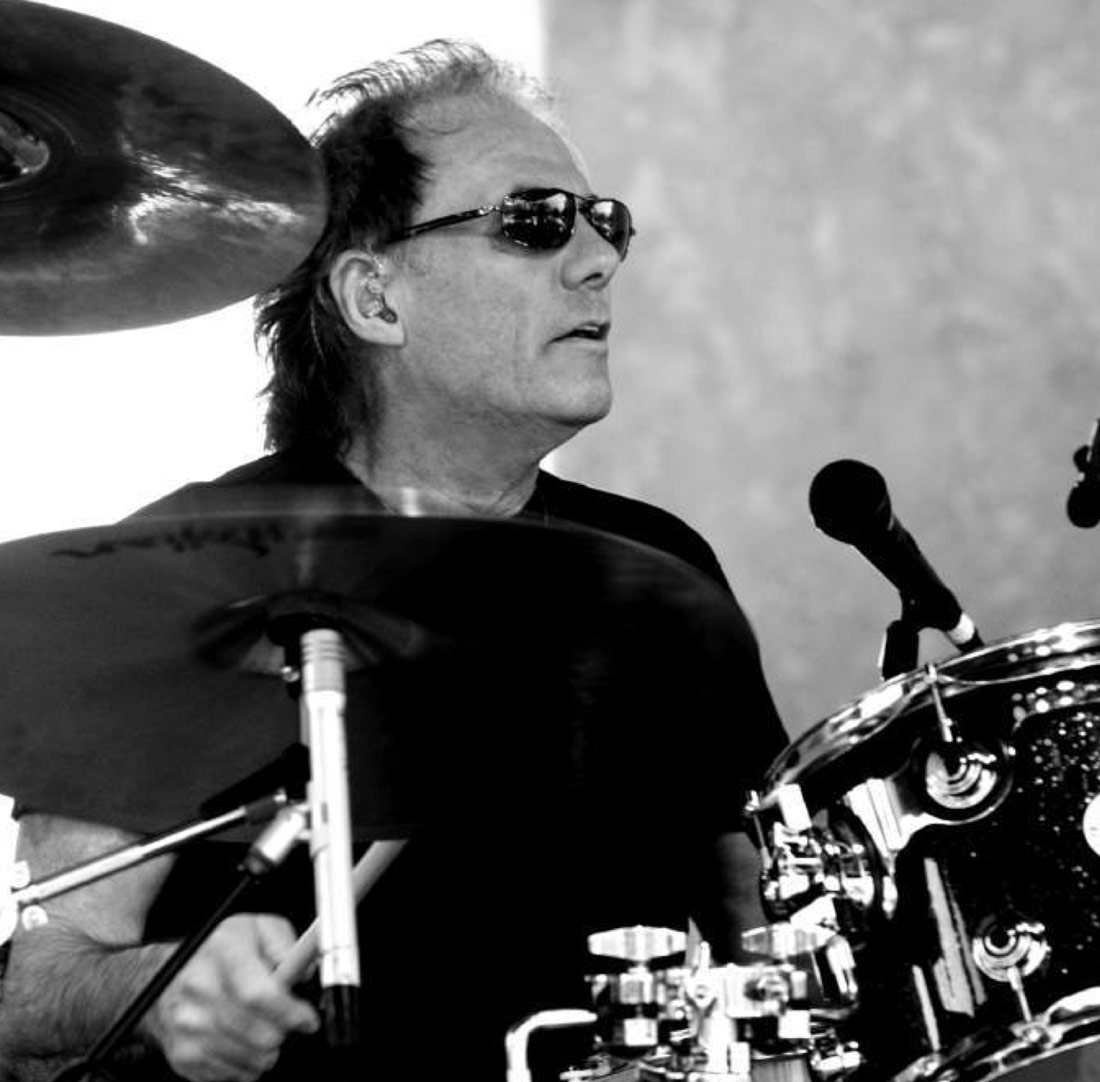
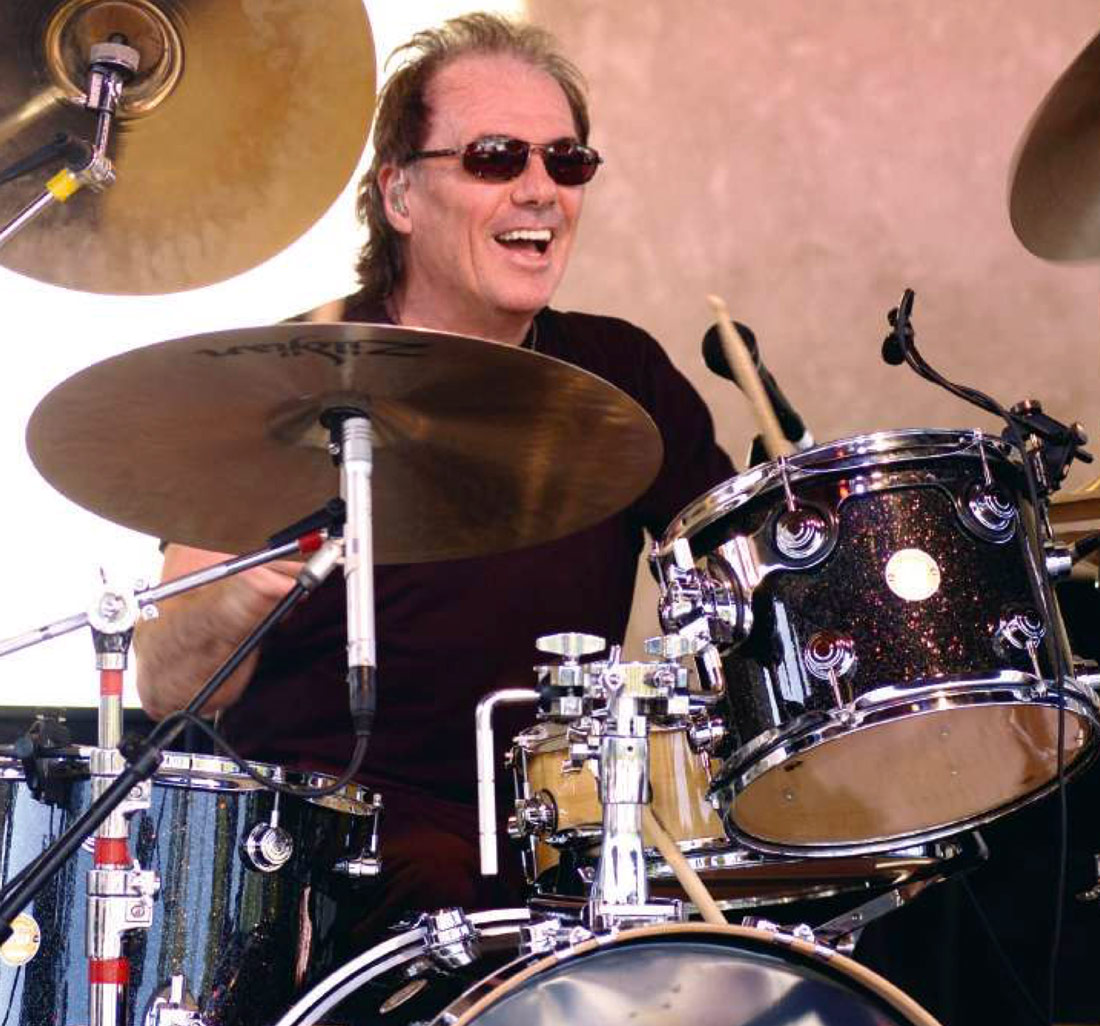
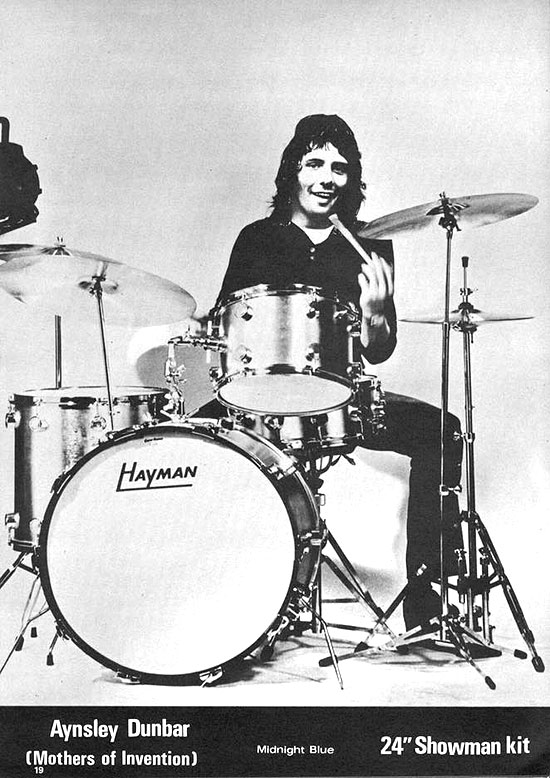
|
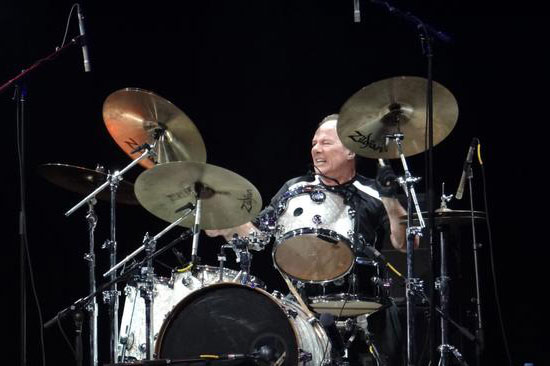
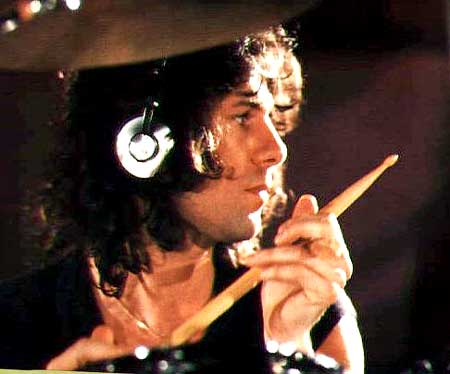
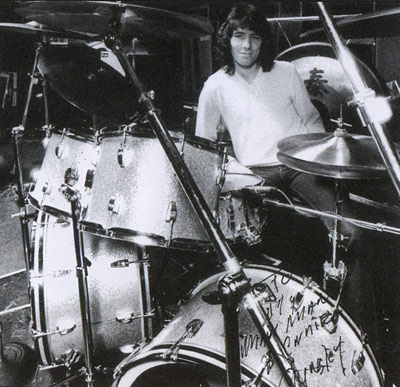
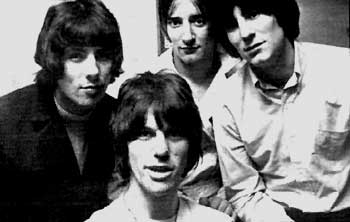 Aynsley Dunbar,
Jeff Beck, Rod Stewart, Ron Wood
Aynsley Dunbar,
Jeff Beck, Rod Stewart, Ron Wood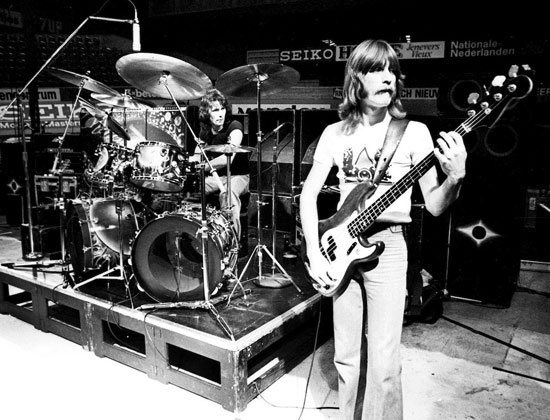 Aynsley Dunbar - Ross
Valorry - Journey - 1977
Aynsley Dunbar - Ross
Valorry - Journey - 1977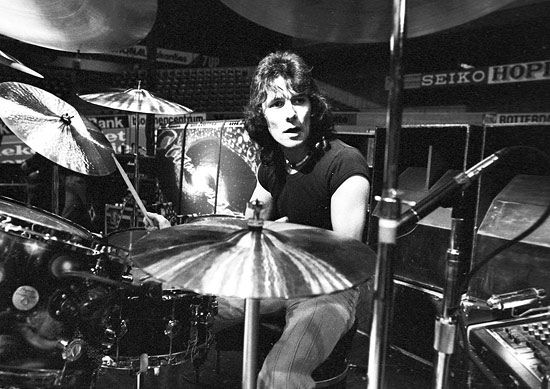
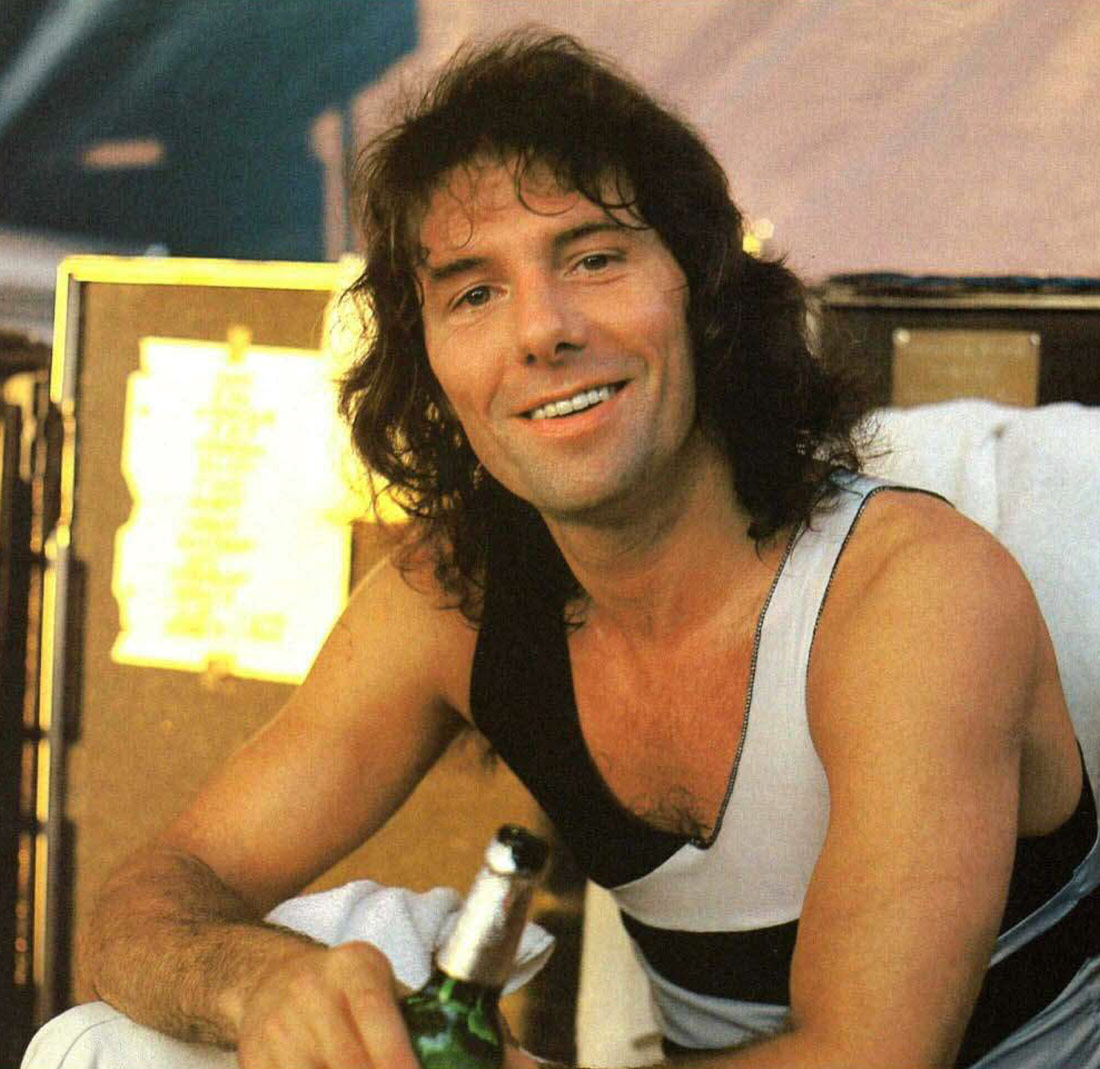
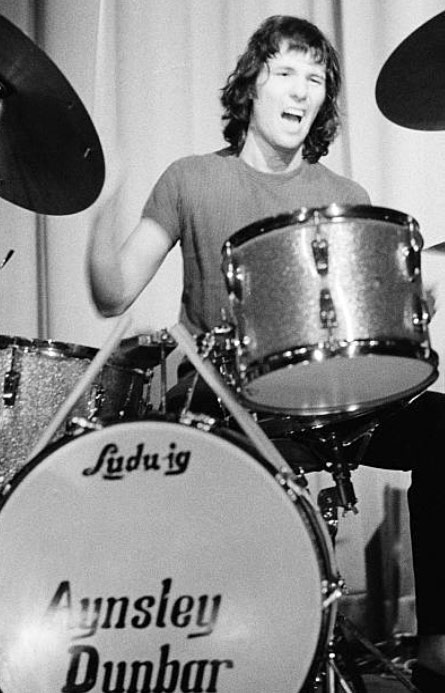
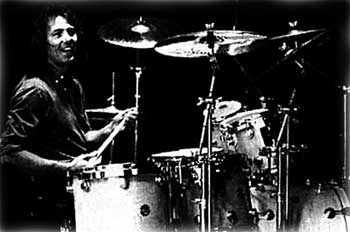
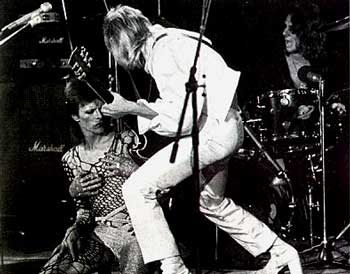 David Bowie, Mick
Ronson and Aynsley Dunbar (1973)
David Bowie, Mick
Ronson and Aynsley Dunbar (1973)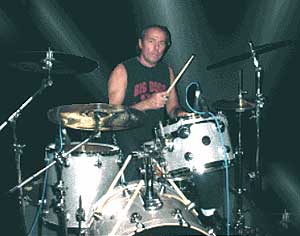
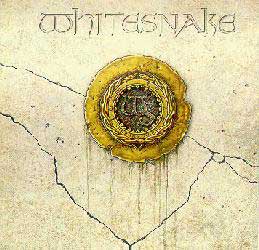

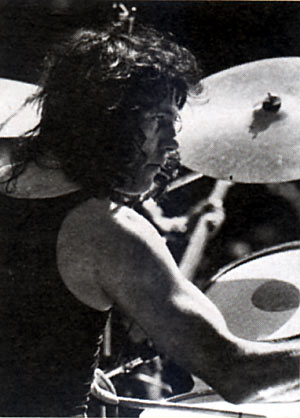
|
 thanks for your
visit!
thanks for your
visit!
CLICK:
the 500 Top Drummers:
the 500 Top Drummers:




